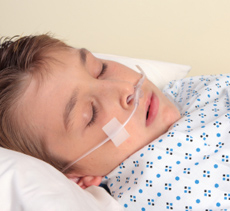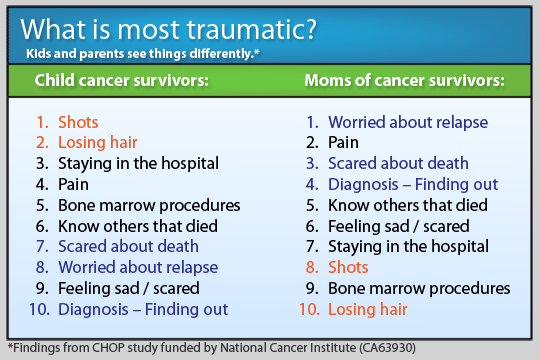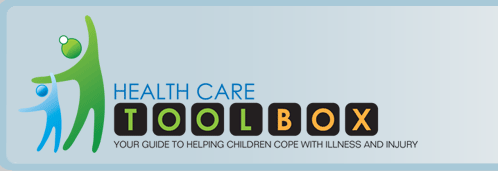What Is Traumatic About Medical Experiences?
...And then to be called into a small room with a bunch of people, sitting there by myself, finding out my son has a brain tumor. …I was stunned. And then they are flying us down to the regional children’s hospital. I couldn’t even find the words when I called my husband at work, no words came out. Then it’s like a circus, there’s all these tests and there’s all these doctors telling you ‘We have to do this. We have to do that.’
And then he had surgery and you just sit there watching the clock, wondering what is going on. Is he going to come out alive? Is he going to have brain damage?
Is he going to be himself?
And then he had surgery and you just sit there watching the clock, wondering what is going on. Is he going to come out alive? Is he going to have brain damage?
Is he going to be himself?
Traumatic medical experiences are rarely a single event. All along the continuum of care, children and families in medical settings can experience multiple traumatic experiences (and things that will trigger feelings or remind them of those experiences). And traumatic stress doesn’t necessarily end with the conclusion of successful medical treatment.

Factors that trigger traumatic stress in medical settings include:
- A specific scary or shocking event (injury / initial diagnosis)
- Pain or painful medical treatment
- Treatment setbacks
- Physical limitations or impairment
- Ongoing uncertainty about prognosis
- The medical environment (hospital sights / sounds, etc.)
- Parental helplessness at seeing their children in pain, distressed, hooked up to medical equipment, etc.
- Separation from parents
- Exposure to distress, pain, or death of others (e.g., other patients)
- Exposure to reminders of past traumatic medical experiences
- Sense of life threat (regardless of objective prognosis)
TAKE-HOME MESSAGE FROM THE RESEARCH DATA:
What counts in risk for traumatic stress is NOT the objective severity of the child’s illness or injury, but how it is experienced by the child or parent (Are they feeling scared or alone? Do they think they might die?).
It all happened so quickly. I was ‘out of it’ and in pain. I was given the first chemo treatment without being told what was going on – that upset me for a long time after that.
Research with ill and injured children and families has also shown that children and parents may find different aspects of the experience traumatic.




